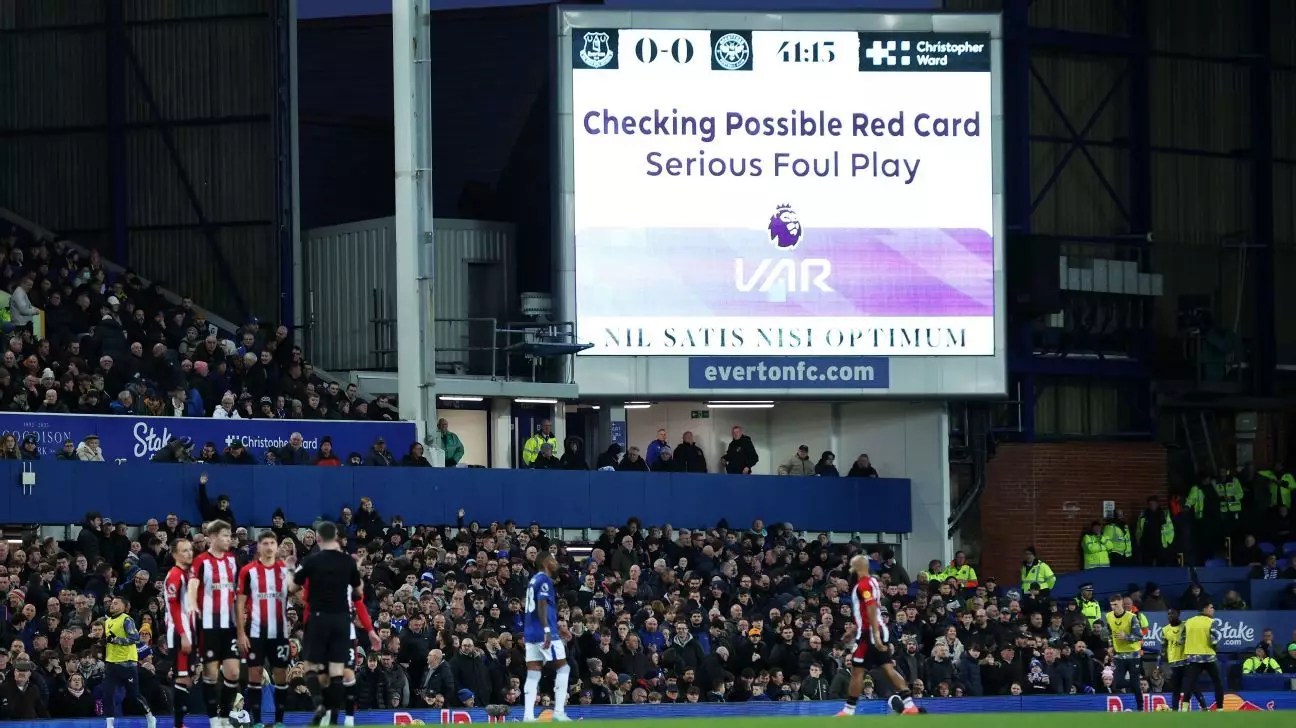In a recent turn of events, Brentford Football Club successfully overturned the red card issued to their captain, Christian Nørgaard, during a tense encounter with Everton that ended in a 0-0 draw. Nørgaard’s dismissal in the first half stemmed from an incident involving Everton goalkeeper Jordan Pickford, where the Brentford player accidentally caught Pickford’s knee while attempting to reach a ball. The match referee, Chris Kavanagh, initially deemed the challenge fair; however, the intervention of Video Assistant Referee (VAR) Matt Donohue led to a review that resulted in a red card for serious foul play. This episode raised significant questions about the efficacy and consistency of VAR in the Premier League.
Brentford’s manager, Thomas Frank, expressed his deep frustration over the decision. He argued passionately that Nørgaard’s intent was not malicious and that the challenge was borne out of a desire to play the ball, not to harm. Frank’s perspective hinged on the notion that common sense should prevail in such contentious situations, emphasizing the unpredictability inherent in fast-paced football. His critique extended not just to the decision itself but also to the application of VAR, suggesting that the ruling body must refine its approach to ensure the spirit of the game is preserved. The overturning of the red card not only cleared Nørgaard of immediate repercussions but also showcased the importance of managerial advocacy in the age of technology-assisted officiating.
A Broader Implication for the Game
The incident invites broader reflection on the current state of officiating within professional football. While VAR was introduced to eliminate clear errors and enhance the overall integrity of the game, cases like Nørgaard’s raise doubts over its effectiveness. The reliance on video review can, at times, lead to outcomes that appear at odds with the live action, challenging the authority of on-field referees and contributing to confusion among players and fans alike. Coaches like Frank are calling for a balance, urging decision-makers to weigh the context of plays rather than solely focusing on strict adherence to the rulebook’s letter.
A crucial dimension often overlooked in interpretation is player intent. Football thrives on split-second decisions, and recognizing the player’s intention behind a challenge can lead to fairer verdicts and ultimately, a more fluid game. Nørgaard’s lack of malice in the situation — attempting to score rather than compromise an opponent’s safety — should have been a pivotal factor in the ruling process. With this in mind, the dialogue surrounding officiating standards must evolve to accommodate the nuances of player behavior, making allowances for the context in which actions occur.
Ultimately, Brentford’s successful appeal against Nørgaard’s red card opens the door for discussion on the future of VAR within the Premier League. While technology has the potential to enhance fairness, the human element of football, which includes understanding intent and context, must not be sidelined. The game benefits from maintaining its competitive spirit and respect for player safety, but it is essential that the measures in place to protect these ideals do not inadvertently lead to unintended consequences. How the governing bodies respond to these challenges will define the narrative of officiating in football as it continues to evolve.


Leave a Reply